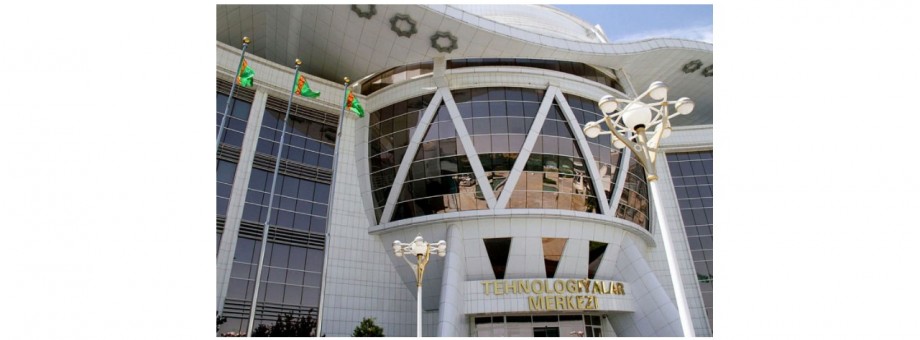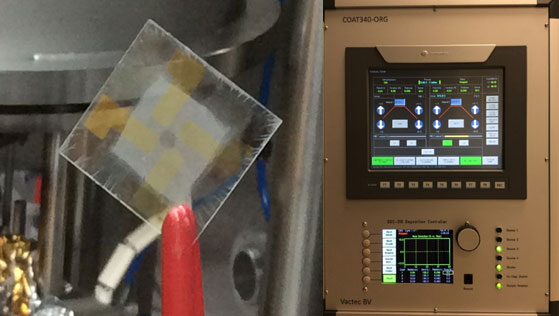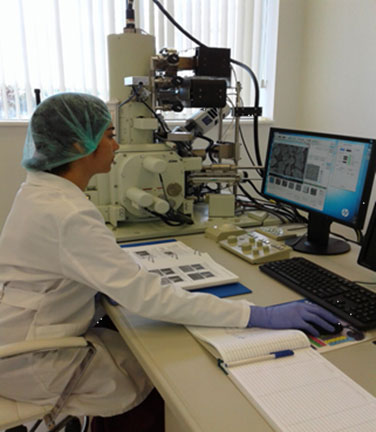TECHNOCENTER: SCIENTIFIC RESEARCH ON A SELF-SUPPORTING BASIS

All ten laboratories of the Center of Technology of the Academy of Sciences of Turkmenistan have switched to self-sustaining economic activities since the new year.
Currently, the laboratories of the Center conduct a complex of interdisciplinary research in the field of bio-, nano-, information technologies, physicochemical in-depth study of substances, molecular biomaterials, hydrocarbons and other research. The results of research carried out at the Technological Center are used in all sectors of the country's economy, including agriculture, medicine, ecology, pharmaceuticals, food, chemical and petrochemical industries. Research on types of energy will help to solve the issues of introducing alternative energy sources into the national economy, efficient use of energy.
Food product - from local raw materials
The Center's biotechnology laboratory specialists carried out a complex of research work on the production of food citric acid on an industrial scale. Mycologist Lyudmila Kulmamedova explained that the product was obtained using the fungus "aspergillus niger" and "molasses" - corn syrup. Now laboratory staff are experimentally selecting the composition of the nutrient medium in order to obtain the maximum possible yield of citric acid.
An artificially synthesized product, it is an excellent preservative for drinks, vegetables and fruits, at the same time giving them a pleasant sourness, thereby improving taste. The same will happen with canned fish and meat, mayonnaise, the recipe of which contains citric acid to preserve them for a long time. In short, such common citric acid is simply irreplaceable in our life. Its production from local raw materials on an industrial scale will allow entrepreneurs to save significant foreign exchange funds.
In the field of vision of the scientists of the laboratory - the development of an effective biological method for cleaning the soil from oil products and the creation of a drug for combating diseases of coniferous trees. According to the head of the laboratory, Aina Atayeva, biologists offered entrepreneurs involved in the cultivation of the fast-growing Paulownia tree to help them quickly and efficiently grow a number of equally healthy seedlings. For this, the most advanced and fundamentally new method of reproduction was used - microclonal reproduction of plants, in other words, the production in vitro (i.e., in a test tube) of plants genetically identical to the originally taken specimen.
Plants obtained by this method quickly move to the reproductive phase of their development. They are easily freed from viruses, this method can be carried out all year round, very significantly saving on areas for planting material.
Carbon nanotubes, nanoparticles, solar cells
The Nanotechnology Department of the Technology Center of the Academy of Sciences of Turkmenistan conducted an experiment on the production of single-walled nanotubes by the method of gas-phase chemical deposition. The nanotubes obtained by this method, being an allotropic modification of carbon, are a hollow cylindrical structure with a diameter from tenths to several tens of nanometers and a length from one micrometer to several centimeters. Simplified, the CNT growth mechanism is as follows. The carbon formed during the thermal decomposition of the hydrocarbon dissolves in the metal nanoparticle. When a high concentration of carbon in the particle is reached, an energetically favorable “release” of excess carbon occurs in the form of a distorted semi-fullerene cap on one of the faces of the catalyst particle. This is how a nanotube is born.
Nanotubes are widely used in electronics, space industry, medicine, and construction. They are used to create biosensors, electronic nanocomponents, and conductive composite materials. In medicine, carbon nanotubes are planned to be used as carriers of medicinal substances.

The world has already managed to create extended fibers from carbon nanotubes, which have high electrical conductivity and strength superior to steel. The Technocenter laboratory plans to produce carbon nanotubes from methane and petroleum coke.
Working on the creation of relatively cheap and easy-to-manufacture perovskite solar cells, the laboratory staff mastered the method of molecular beam epitaxy of semiconductor layers by their deposition from the vapor-gas phase, and began to study their current-voltage characteristics.

In addition, here they mastered the production of nanoparticles of various metals (copper, gold, silver, titanium and other metals) whose dimensions in all three dimensions range from 1 to 100 nm.

Using the specific properties of nanoparticles, explains the head of the department Khalmurad Orunbaev, it is possible to significantly change the properties of macroparticles and macrostructures, to give completely different, unusual properties to substances, solids. For example, to create new compounds of metals, alloys, to improve the characteristics of familiar materials, only by adding a certain amount of nanoparticles, which will radically change the structure of the crystal lattice or the physical and mechanical properties of materials.
Investments - in relevant industries
The transfer center of the scientific institution makes a significant contribution to the implementation and implementation of the results of research, development and experimental-technological work carried out in the Technological Center of the Academy of Sciences of Turkmenistan. Several years ago, it was established on the basis of the Technology Center to promote the development of domestic production and the introduction of foreign advanced technologies. One of the main goals of the Center is to assess the possibility of commercializing the results of scientific work with high business potential, creating intellectual property, attracting financial resources to identify and commercializing intellectual property, creating start-ups, combining science and production in the country through business incubators.
One of the topical directions in the field of implementation of innovative projects in start-ups and business incubators of small and medium-sized businesses are projects related to the introduction of innovative technologies in production for ministries and departments.
Currently, for the first time in Turkmenistan, a databank of all original inventions is being created in the transfer center for their introduction into business incubators with the involvement of venture capital.
-We place a special emphasis in business incubators for young entrepreneurs on issues related to the textile industry, improving the quality of yarn, explain Candidate of Economic Sciences Ogulsuray Atayeva and Candidate of Economic Sciences Berdynazar Khojanazarov, production of "gaprin" - a high-protein feed for livestock for the needs of animal husbandry.
The transfer department works in the field of attracting foreign investment in highly profitable and highly scarce industries, such as fishmeal production, machine-tool building, automotive industry, production of woolen yarn and catgut and others.
Technopark together with business incubators is preparing a curriculum for short-term trainings "Mechanism and technical solution of export operations"
Technocenter: scientific research on a self-supporting basis (turkmenistan.gov.tm)


 NEWS
NEWS